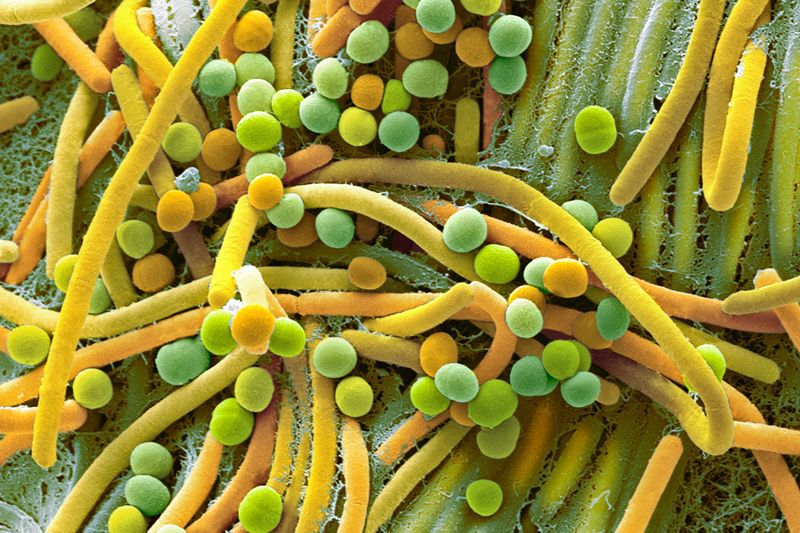Newly isolated human gut bacterium reveals possible connection to depression
The research team from the U.S. Department of Energy’s (DOE) Argonne National Laboratory, Northeastern University and elsewhere made the connection by first isolating the KLE1738, a bacterium that has a surprising dependency upon a brain chemical called gamma-aminobutyric acid (GABA).
Professor Jack A. Gilbert, Leader for Microbial Ecology at Argonne National Laboratory, who also holds new faculty appointments at the University of California, San Diego, in the Department of Pediatrics and at Scripps Institution of Oceanography stated that “the association of microbial GABA metabolism with mental health is highly compelling. The general ability of the microbiome to produce and/or consume GABA has not been as broadly described before, and a bacterium dependent on GABA has never been reported.”
The gut microbiota affects many important host functions, including the immune response and the nervous system1. However, while substantial progress has been made in growing diverse microorganisms of the microbiota2, 23–65% of species residing in the human gut remain uncultured3,4, which is an obstacle for understanding their biological roles. A likely reason for this unculturability is the absence in artificial media of key growth factors that are provided by neighbouring bacteria in situ5,6. In the present study, we used co-culture to isolate KLE1738, which required the presence of Bacteroides fragilis to grow. Bioassay-driven purification of B. fragilis supernatant led to the isolation of the growth factor, which, surprisingly, is the major inhibitory neurotransmitter GABA (γ-aminobutyric acid). GABA was the only tested nutrient that supported the growth of KLE1738, and a genome analysis supported a GABA-dependent metabolism mechanism. Using growth of KLE1738 as an indicator, we isolated a variety of GABA-producing bacteria, and found that Bacteroides ssp. produced large quantities of GABA. Genome-based metabolic modelling of the human gut microbiota revealed multiple genera with the predicted capability to produce or consume GABA. A transcriptome analysis of human stool samples from healthy individuals showed that GABA-producing pathways are actively expressed by Bacteroides, Parabacteroides and Escherichia species. By coupling 16S ribosmal RNA sequencing with functional magentic resonance imaging in patients with major depressive disorder, a disease associated with an altered GABA-mediated response, we found that the relative abundance levels of faecal Bacteroides are negatively correlated with brain signatures associated with depression.
To access the full publication:
Newly isolated human gut bacterium reveals a possible connection to depression



